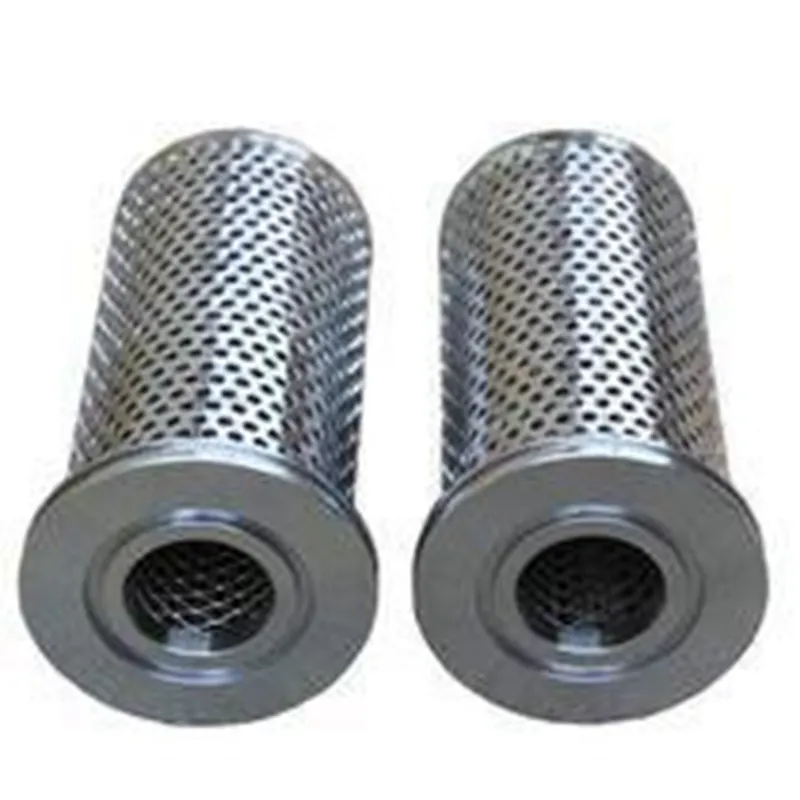 Tel:
+8618931101301
Tel:
+8618931101301
Dec . 06, 2024 12:35 Back to list
Innovative Cartridge Vacuum Filter Solutions for Efficient Filtration Processes
Understanding Cartridge Vacuum Filters A Comprehensive Overview
Cartridge vacuum filters are an essential component in various industrial applications, specifically in processes that require the efficient separation of solids from liquids. These filters combine the principles of vacuum filtration and cartridge technology to provide a reliable and effective solution for minimizing contamination and maximizing the purity of liquid products. In this article, we will explore the design, operation, benefits, and applications of cartridge vacuum filters.
Design and Structure
At its core, a cartridge vacuum filter consists of a series of filter cartridges housed in a filter chamber. These cartridges are typically made of porous materials such as polyester, polypropylene, or glass fiber, which allow liquids to pass through while trapping solid particles. The design is modular, which means that the number of cartridges can be adjusted based on the filtration requirement.
The most common configuration involves a cylindrical filter element that enhances the surface area available for filtration, allowing for effective solid-liquid separation. These cartridges are often designed for easy replacement and maintenance, ensuring minimal downtime in industrial processes. Additionally, the materials used in the cartridges are resistant to various chemical agents, enabling their use in a wide range of applications without the risk of degradation.
Operating Principle
Cartridge vacuum filters operate on the principle of applying negative pressure to facilitate the passage of liquid through the filter media. The process begins when a vacuum is created in the filter chamber, leading to a pressure differential that propels the liquid towards the filter cartridges. As the liquid flows through, solid particles are retained on the surface of the cartridges, forming a filter cake. This cake can enhance filtration efficiency by providing an additional barrier against smaller particles.
As more liquid passes through the cartridges, the filter cake accumulates, which can eventually lead to a drop in flow rate. To address this, operators can either clean the cartridges through backwashing or replace them entirely, allowing for continuous operation and optimal filtration performance.
cartridge vacuum filter

Benefits of Cartridge Vacuum Filters
One of the primary benefits of using cartridge vacuum filters is their efficiency in removing particulate contaminants. These filters can achieve high levels of clarity in the filtrate, which is crucial in industries such as pharmaceuticals, food and beverage, and wastewater treatment. Additionally, their compact design ensures that they occupy minimal floor space, making them suitable for facilities with limited room.
Cartridge vacuum filters also offer a high flow rate relative to their size, allowing for quick processing times. This feature is particularly important in high-throughput environments where time is a critical factor. Moreover, the modular nature of cartridge systems enables scalability, allowing businesses to adapt their filtration processes as demand changes.
Applications
The versatility of cartridge vacuum filters makes them ideal for a wide array of applications. In the pharmaceutical industry, they are used for the precision filtration of active ingredients and excipients, ensuring that products meet stringent regulatory standards. In the food and beverage sector, these filters remove solids from juices, oils, and other liquids, enhancing product quality and shelf life.
Furthermore, in wastewater treatment, cartridge vacuum filters are employed to separate solids from effluent, helping to improve water quality before discharge or reuse. Their ability to operate in various chemical environments also allows industries dealing with corrosive substances to effectively manage filtration without compromising equipment integrity.
Conclusion
In summary, cartridge vacuum filters represent a sophisticated solution for solid-liquid separation in various industrial contexts. Their efficient design, along with their operational flexibility, makes them a popular choice across multiple sectors. As industries continue to prioritize quality and efficiency, the demand for reliable filtration systems like cartridge vacuum filters is expected to grow, solidifying their position as a critical component in modern manufacturing and processing applications.
-
Working principle of high-efficiency dust filter elementNewsJun.26,2025
-
The truth about washable filters: Does repeated use really not affect efficiency?NewsJun.25,2025
-
Effect of humidity on the performance of activated carbon filter elementsNewsJun.24,2025
-
Material selection considerations for dust removal filter elements under high temperature conditionsNewsJun.23,2025
-
Cold knowledge of air filters: Why are some designed to be pleated?NewsJun.16,2025
-
Factory direct supply! High-precision air filter element wholesale and customizationNewsJun.12,2025

 Email:
Email:





